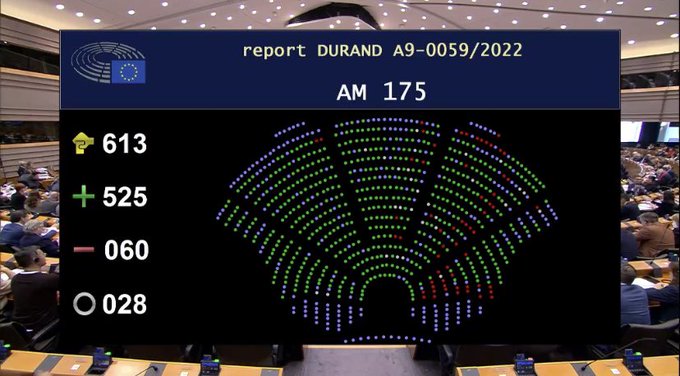The four partners and co-founders of WEMEAN advocate a concrete, operational raison d'être at every level of the organization. In their view, the key to real transformation is to get everyone on board, with new corporate dynamics, shared value and a positive impact on society at the end of the road.

Decision-makers. You help companies find their raison d'être. Has the recent health crisis changed this process?
The WEMEAN team. The crisis has served as a catalyst and gas pedal for the raison d'être. We see it every day in companies. No manager can afford to miss out on this subject, which is expected by employees, customers, all stakeholders and society as a whole. There will be a before and an after to Covid, undoubtedly one of the few positive effects of this period. Not a subject that has become "secondary", quite the contrary, but an issue understood as "fundamental", "founding". Thinking about raison d'être leads us to chart the future of companies and the horizon of usefulness they choose for themselves. This is where our relationship with the current crisis comes into play.
The health crisis had both immediate and far-reaching consequences for organizations. The main one has been to ask every manager what the company's role should be in a world that is more uncertain than ever, if not unknown...
What use is my company in this world if its activity can be stopped overnight? What use am I, in this organization and in society, if I have to stay at home? These are the fundamental questions we've all been asking ourselves. These questions about the place of companies and the role of each individual will be just as topical for the reconstruction and recovery. That's why, and because the need for meaning is everywhere, the subject of raison d'être and how to make it concrete must, in our view, be "at the top of the pile" in the post-crisis period.
Has Covid-19 accelerated the positive transformation of companies, as you predicted last year?
Yes, it was the Covid crisis that accelerated the need to transform ourselves to meet the expectations of our society. In a way, this crisis forced every company to give meaning - useful, tangible meaning - to its actions in a world that needed it. A number of examples are striking, such as the economic agility of players in the luxury and consumer goods sectors, who have adapted their production lines to manufacture hydroalcoholic gel or face masks.
The same is true of the retail and pharmaceutical industries, which were on the front line as quickly as possible during the crisis, in the service of the collective. A majority of companies undertook positive transformations directly linked to the conditions under which they were able to continue operating despite the confinement and remote working. These included continuity, organization, management, communication and listening.
"A concrete raison d'être is everyone's business, at every level and in every profession".
At a deeper level, the crisis is calling into question models and utility in society, with implications for the delivery and operationalization of change. This is why raison d'être only exists in action and implementation: it functions as a "lever", as it is a driving force for constant improvement. It is in this sense that raison d'être demands that we define objectives and make them "assessable" through a logic of indicators and KPIs. These transformations will not take place without questioning and friction. The road ahead may be difficult, because it requires us to change fast and hard... but there's no better way.
What do you think of France's progress in the search for corporate purpose? Do you think it's a subject that's valued enough in France?
The subject of raison d'être has been highly visible and much debated since the adoption of the Pacte law. This is a good thing, but today it must play a transformative role, and not just be a simple formula to be adopted as needed in the company's articles of association. The raison d'être is only worthwhile if it is everyone's business, at all levels, in all professions, right down to the operational level.
In a company, each and every employee must contribute to implementing the raison d'être. This is what makes it real, and what gives meaning to everyone's role. You need to know, on a day-to-day basis, "how I contribute to realizing my company's raison d'être". If you can answer this question at every level of the company, you've reached the end of the exercise. Conversely, a company that adopts a raison d'être that does not emanate from its corporate body, and which is not translated operationally other than through its communications, is at risk. That of being accountable and answerable in the short term. The raison d'être obliges.
"Communication plays its part in highlighting proof and commitment".
What's the difference between a company that defines its raison d'être, and "a company with a mission"?
The raison d'être is a step on the way to becoming a mission-driven company, which is not to say that every organization is destined to become a mission-driven company.
We believe that the first step is to establish a raison d'être, and to define it operationally, before tackling the question of mission, which is yet another project, more involving but also more restrictive. You have to be ready for it, and prepare for it, because it's an evolution that has consequences in terms of law, governance and strategy. You have to accept this time for reflection and work on the mission, without falling into the pitfall of "everything right away", which can be a trap and lead to misunderstanding on the part of stakeholders. So it's also a communications issue to know how to tell the story of how the company is moving forward, responsibly and transparently, towards a mission-driven company.
On the other hand, we feel that the "mission-driven company" scheme is an interesting source of inspiration, even for companies that do not officially claim to be such: it obliges companies to define social and environmental objectives linked to their raison d'être, and to evaluate them through a dual system of internal monitoring and external control. It also shakes up the traditional methods of corporate governance by "opening up" the corporate world to the outside world and ensuring greater employee representation on governance bodies. This seems to us to be a sound approach.
In a society where the notions of "Body/Think positive", "sharing" and "transparency" have become common communication trends that flourish everywhere, isn't there a risk for a company of failing to find a singular identity and raison d'être?
A good raison d'être is the crossroads between contemporary issues and the fundamentals of meaning specific to the company. For example, Groupe Rocher's raison d'être "reconnect people to nature" responds both to the observation that severing the link with nature is deleterious for both humans and the planet, and also reactivates the founding experience of the young Yves Rocher who, at the age of 14, spent two years in nature. Then, the singularity comes in the declension and appropriation.
The most important thing in an organization is that everyone contributes to its raison d'être, both by sharing in the project and by implementing it. This is how we can speak of singularity and ownership. Communication must be aligned with the raison d'être, constantly providing proof and commitment.
Is digital an enabler of business creativity or, on the contrary, a dangerous and ruthless arena for competition?
Digital technology and networks are at the crossroads of participation and commitment for companies and their employees. It's a formidable lever for exchange, commitment, interaction and participation. When Orange launched its "raison d'être" project, part of the participation of employees was via social networks, because this is the place that brings everyone together, more than an intranet or a company network, and the most effective there is.
It's a reality we live with, which we must accept and, above all, use in the right way to create ongoing dialogue and consultation: digital must also define its raison d'être! Now is not the time for defiance, but for action on social networks, with all the precautions, responsibilities and safeguards that this implies. In any case, it's through social networks that creativity will be stimulated within companies, that's for sure.


